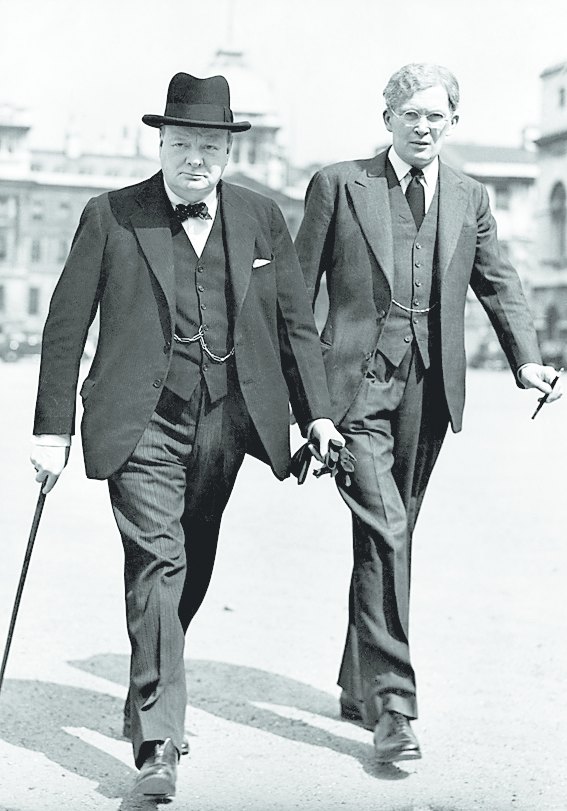
CLOSET QUEENS: SOME 20TH CENTURY BRITISH POLITICIANS By Michael Bloch, Little, Brown, £25
The title of the book is sensational and misleading. Not all the personalities that Michael Bloch writes about - his dramatis personae stretches from the late 19th to the end of the 20th century - were queens. That is, they were not homosexuals, not even closet ones. Many of them preferred the company of young and good looking men, which really means nothing. If they had preferred the company of nubile young girls - as indeed so many men do - would that be sufficient evidence that they were seducers and fornicators? What is even more misleading is that there is the suggestion, true that it is never quite explicated, that the sexual proclivities of this cast of characters had implications for the politics of Great Britain. Except for the case of a handful, this is not valid, or at least it is not demonstrated. So why write this book? The answer that immediately comes to mind is that the author wants to titillate the prurience of his readers. Apart from the aesthetics of such an enterprise, the problem is that for most of Bloch's readers in Britain, surely his target audience, much of what he "reveals" could be old hat. Thus, questions remain about the aim and purpose of the book and its title.
Having expressed these reservations at the very beginning, let me say that there could be, under some strain, a different way to approach this book. The book is clearly about a section of the political elite of Britain spread over a century or more. Most of the public figures here went to Eton, some went to Winchester or some other prominent public school. Most of them went to some Oxbridge college. (Here Bloch is exasperating. He keeps writing "so and so went to Oxford/Cambridge" without mentioning the college. Only on some occasions, especially if the person went to Christ Church, is the college mentioned. Surely Bloch knows that in Oxbridge, the college is important.) All the characters belonged to what is best described as, for the lack of a better word, "the Set" - their identities were tied to the institutions to which they belonged: the schools, the universities, the two houses of Parliament, the corridors of Whitehall, the clubs of London and elaborate dinner parties in Belgravia or in country houses. The book is thus about a slice of British upper class society. The sexual preferences of the characters thus assume a lower key in Bloch's articulation.
An important descriptive category for Bloch is "sexually ambiguous" - a term which is also a trifle ambiguous. It includes men who were effeminate and/or men who liked the company of young and gay men. In this category falls the redoubtable Winston Churchill. Bloch points out that at the outset of his career, a fellow subaltern in the Fourth Hussars accused Churchill of having "participated in acts of gross immorality of the Oscar Wilde type" when they had been cadets at Sandhurst. The veracity of this statement was never examined or tested. But Churchill did have friendships with men who were known to be gay: Noel Coward, T.E. Lawrence and, of course, that notorious bisexual rake, Bob Boothby (who trailed a long affair with Harold Macmillan's wife, and may have been the biological father of one of Macmillan's daughters).
Churchill loved the company of men with angelic looks. One such man was the poet, Rupert Brooke, after whose untimely death Churchill wrote in The Times that Brooke had been "joyous, fearless, versatile, deeply instructed, with classic symmetry of mind and body, all that one would wish England's noblest sons to be." The other was less famous, Archibald Sinclair (1890-1970), a baronet who looked up to Churchill as a father figure, and the latter rewarded him with important jobs that kept "Archie safe" from the First World War. The bulldog and his angels must have made quite a pairing!
Another Churchill favourite was Brendan Bracken (who may have been a homosexual: his private papers were all destroyed after his death as per his instructions) who, for a period, actually moved into Chartwell, the Churchill country residence. Hence the acid comment of Clementine Churchill, "Mr Bracken arrived with the furniture and he never left." But Churchill's most memorable contribution to the prevalence of homosexuality in upper class English social life was, not unexpectedly, a witticism that Matthew Parris quotes in his Foreword to this book. One cold November when Churchill received a report that a minister had been caught cavorting with a guardsman in the bushes of St James's Park, he remarked, "On the coldest night of the year? It makes you proud to be British."
The lives of all the men that Bloch looks at are not as well documented as Churchill's. Many of them, as Bloch notes, were remarkably clever in hiding their sexual practices. Bloch also suggests that given the nature of the laws against homosexuality in Britain in the period being discussed, many of them actually suppressed the nature of their sexuality. This leads to one of the problems with Bloch's book. The lines separating hard evidence from rumour and speculation get blurred. The yarn is often based on speculation and innuendo. The word "yarn" is used advisedly. What Bloch spins is a series of entertaining, if prurient, stories that are told with great verve and brio. Is it history? The answer, as they say, is blowing in the wind. Bits of it probably are, but large parts of it fall in the yawning gap that separates charming tittle tattle from fact-based narrative.











